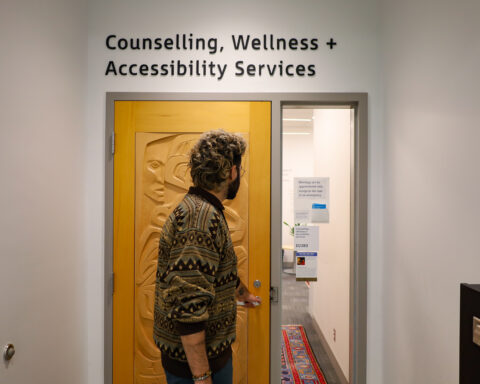Scholars and students recently gathered at Canada’s top health education institute to discuss racial health inequities experienced by immigrants, refugees and racialized groups.
The eighth annual Dalla Lana student-led conference titled Racial Justice Matters: Advocating for Racial Health Equity took place at University of Toronto’s (U of T) Dalla Lana School of Public Health this past weekend.
Approximately 200 undergraduate and graduate students from U of T, along with academics and researchers, health policymakers and members of immigrant community agencies were in attendance.
The goal was to share trans-disciplinary thoughts and solutions to achieving racial health equity in the Greater Toronto Area. The organizers hoped the conference could shift the conversation in public health by reframing racism as a public health issue.
“We chose this theme for our conference because of the staggering inequities faced by racialized individuals in Canada that not only affect their social outcomes, but health outcomes as well.”
“We chose this theme for our conference because of the staggering inequities faced by racialized individuals in Canada that not only affect their social outcomes, but health outcomes as well,” says Anjum Sultana, one of the co-chairs of the conference and a student in the masters of public health program at the Dalla Lana School.
The two-day event examined topics ranging from racism and health inequities to immigrant mental health services, refugee health insurance, culturally safe patient care and indigenous study. Specific subjects such as sexual health promotion for racialized communities were also addressed.
Culturally competent services
Dr. Lin Fang, one of the conference’s speakers held a session titled “Culturally Responsive Mental Health Services for Racialized Groups”.
She shared that despite how important “culturally competent” services are to immigrant communities the government still worries that branding services as such will discourage social service inclusiveness.
“It’s scary (to them),” she admits.
Fang, an associate professor at University of Toronto, specializes in mental health services for immigrants, refugees and racialized groups and is also the board chair for Hong Fook Mental Health Association, a community agency that has served East and Southeast Asian communities for three decades.
Immigrants are not immune to suffering from mental health issues, explains Fang.
“[Just over six per cent] of immigrants [have] had at least one major depressive episode,” says Fang, “[and] 0.5 per cent of immigrants reported experiencing problems related to alcohol dependence. First- and second-generation immigrants were at elevated risk for psychosis.”
[D]espite how important “culturally competent” services are to immigrant communities the government still worries that branding services as such will discourage social service inclusiveness.
And while suicide rates for the immigrant population were about half of those of the Canadian-born, psychological distress, post traumatic stress disorder and depression are high in refugee groups, Fang continues.
“New immigrants and refugees are also less likely to seek out and be referred to mental health services, or use less services,” Fang indicates, explaining that language barriers, inadequate time and fractured support networks all contribute to such a reality.
Culturally responsive services can play an important role in bridging this gap.
In Hong Fook’s annual report one of its clients describes how such services helped:
“During the Lunar New Year, I was back to square one with my depression. I did not pick up the phone at all, and my mental health worker ended up paying me an unscheduled visit, and helped me to connect with my family. She knows my culture and the meaning of the Lunar New Year for me, and I value her support a lot,” the client said.
Factoring in poverty
Factors contributing to immigrant mental health issues include pre-migration events and post-migration stress.
A large part of post-migration stress can be tied to income. For example, in Toronto, the poverty rate of some immigrant groups – 69.5 per cent for the Somali community, 27 per cent for the Tamil community and 56 per cent for the Afghan community – is much higher than the city’s 17 per cent average.
“[W]hat we really want to do is find an institutional solution to improve our responses to aboriginal and indigenous people, immigrants and refugees.”
Poverty is often linked to unemployment and underemployment. Unemployment is 30 per cent higher for immigrants than for those who are Canadian-born.
Not to mention, many immigrants arrive highly educated, but are forced to work in unrelated ‘survival’ jobs just to make ends meet due to a lack of Canadian experience or their foreign credentials not being recognized.
Next steps
“[The results of this conference] will definitely not disappear,” promises Meena Bhardwaj, co-chair of the conference and also in her second year of the masters of public health program at Dalla Lana.
“We have a website. Every single talk will have notes that will be available online. We also have some forward direction that we will take after the conference.”
Sultana adds that Toronto is well positioned as a city in which real change can happen.
“After the conference, what we really want to do is find an institutional solution to improve our responses to aboriginal and indigenous people, immigrants and refugees,” she says. “We are going to ask our faculty here to start pushing forward.”
Shan is a photojournalist and event photographer based in Toronto with more than a decade of experience. From Beijing Olympic Games to The Dalai Lama in Exile, she has covered a wide range of editorial assignments.





